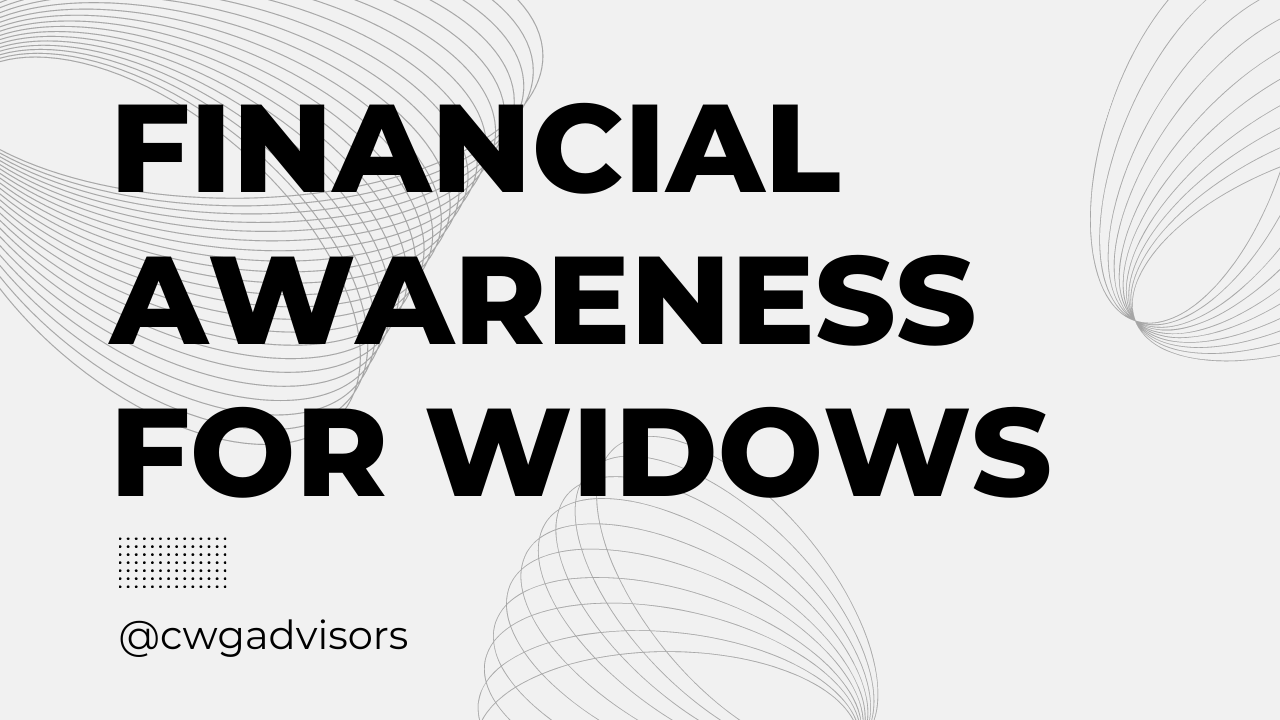Financial Awareness For Widows - Struggling through the Fog of Grief
- Blog
- Financial Awareness For Widows - Struggling through the Fog of Grief

Financial Awareness For Widows - Struggling through the Fog of Grief
- By CWG Advisors
- March 14, 2022
- 0
As a wealth management firm, we have worked with many clients who are widowed. Oftentimes, when a spouse passes away and leaves the surviving spouse with a large family of investments and things to manage, it can be overwhelming. Especially if the surviving spouse did not manage their finances. Often, these clients don’t know what they spend, how much their mortgage is, what assets they have, how much debt they have, what is in their investment accounts, or what is in their pension and retirement accounts. They weren’t the ones handling the bills, so how should they know? They typically weren’t the ones doing the investments or meeting with the wealth managers either.
Not being totally financially aware should not be a source of embarrassment though, and it certainly shouldn’t stop you from getting things in order.
Start Off on the Right Foot
When you are grieving, friends and family may give you advice without knowing your entire financial situation. It's important to seek the help of a non-biased financial advisor. A professional advisor can objectively look at your finances and provide guidance. The best advisor for you should have an accepted professional designation, such as a CERTIFIED FINANCIAL PLANNER ™. They should also be experienced in working with widows and put their clients’ interests first, offering holistic advice.
Helpful Task List
In the days after a loved one's death, it is important to save big decisions and tasks for when you can look at them clearly. When ready, we recommend breaking things down into manigible tasks. Some example can be found below:
- Make sure the funeral director you’re working with has notified the Social Security Administration of the death and ordered certified copies of the death certificate for tasks such as retitling the mortgage and changing owner names on financial accounts.
- Get a notebook for logging important financial conversations. Advisers and survivors say this is essential in the foggy, early days of grieving.
- Look through banking information and note all reacurring payments and their amounts. You may also look through electronic email notifications (if you have access to your spouse's account information).
- Update account information so things are in your name.
- Cancel any subscriptions or services your spouse participated in alone and look for unsustainable expenses.
- Contact the life insurance agent for any policies you own and make a claim.
- Apply for Social Security Benefits.
- Create a realistic budget based off of current inflow of money.
- Start thinking longterm about your assets.
- Manage personal retirement savings and review spouse's 401K, IRA and additional investment accounts (if applicable).
This is for informational purposes only. Investment advisory services offered through Cornerstone Wealth Group, LLC dba Cornerstone Wealth, an SEC-registered investment adviser.
Navigating Financial Changes: Why Fall is the Perfect Time for Financial Planning
The Importance of Long Term Care Insurance: Protecting Your Financial Future
The Importance of Staying the Course with Your Investment Plan
Contact Info
- Phone:704-987-3410
- Email: info@cwgadvisors.com
Web: cwgadvisors.com









